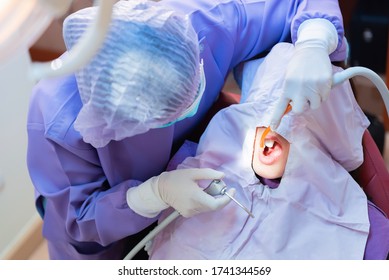Dental health is a vital aspect of our overall well-being. When issues arise, restorative dentistry steps in to help restore that radiant smile. One of the most effective solutions in this field is dental crowns. These versatile dental restorations serve more than just an aesthetic purpose; they play a crucial role in maintaining oral function and integrity. If you've ever wondered how dental crowns can transform your tooth's health while enhancing its appearance, you're not alone. Let's dive into the fascinating world of dental crowns, especially if you're seeking options for dental crowns in West Los Angeles, CA.
Types of Dental Crowns and Their Uses
Dental crowns come in various materials, each tailored for specific needs. Porcelain crowns are popular for their natural appearance and blend seamlessly with surrounding teeth. They're ideal for front teeth restorations where aesthetics matter.
Metal crowns, made from gold or other alloys, offer remarkable durability. They withstand significant chewing forces, making them perfect for molars or areas prone to wear.
Resin crowns are an affordable option that provides a decent aesthetic result but may not last as long as porcelain or metal varieties. Their use is often temporary while waiting for a more permanent solution.
Ceramic crowns combine strength and beauty, making them suitable for both front and back teeth. They resist wear remarkably well while mimicking the translucency of real enamel.
Each crown type serves different situations in restorative dentistry, addressing not only cosmetic concerns but also functional requirements effectively.
How Dental Crowns Work in Restorative Dentistry
Dental crowns play a pivotal role in restorative dentistry. They act as protective caps placed over damaged or decayed teeth, restoring both function and appearance. When a tooth is severely injured or weakened, it may not be able to support everyday activities like chewing.
The process begins with your dentist in West Los Angeles, CA carefully preparing the affected tooth by removing any decay. This step ensures that the crown fits securely and restores strength to the compromised area. Afterward, impressions are taken to create a custom crown tailored specifically for your mouth.
Once fabricated, dental crowns can be made from various materials such as porcelain, metal, or resin composites. Each material offers unique benefits depending on where the crown will be placed and how much wear it will face during daily use.
After placement, crowns effectively distribute bite forces evenly across surrounding teeth while providing long-lasting protection against further damage.
The Benefits of Dental Crowns Beyond Aesthetics
- Dental crowns serve a crucial function beyond their cosmetic appeal. They provide strength and stability to weakened teeth. This makes them invaluable for individuals suffering from extensive decay or damage.
- Crowns can restore your bite, allowing you to chew comfortably again. A well-placed crown evenly distributes pressure when you eat, reducing the risk of further tooth injury.
- These restorations also protect sensitive areas of the tooth structure. By covering exposed nerves or roots, they prevent pain and sensitivity triggered by temperature changes.
- Additionally, dental crowns can improve oral health overall. They help maintain alignment by preventing shifting in surrounding teeth after loss or damage occurs.
- When crafted from durable materials like porcelain or metal, these crowns offer long-lasting solutions that withstand daily wear and tear while ensuring your smile remains intact. Contact us to learn more.
The Process of Getting a Dental Crown
Getting a dental crown typically unfolds over two visits to your dentist. During the first visit, your dentist will assess the tooth needing restoration. They may take X-rays to determine its health and structure.
Next, the tooth is shaped to accommodate the crown. This involves removing any decayed material or damaged parts. After shaping, an impression of your tooth is created and sent off to a lab where your custom crown will be made.
While you wait for the permanent crown, a temporary one is placed on your tooth for protection. In about two weeks, you'll return for the second appointment.
During this visit, your dentist removes the temporary crown and securely places the new one. Adjustments are made as needed until it fits comfortably in your mouth. You’ll leave with a restored smile that feels natural and secure.
Maintenance and Care for Dental Crowns
Maintaining your dental crowns is essential for their longevity.
- Start with a solid oral hygiene routine. Brush twice daily and floss regularly to keep plaque at bay.
- Avoid hard foods that might chip or damage the crown. Chewing ice, for example, can be particularly harmful to both natural teeth and crowns alike.
- Regular dental check-ups are vital too. Your dentist will monitor the condition of your crowns during these visits, ensuring they remain in good shape.
- It’s also wise to watch out for any signs of discomfort or looseness in the crown. Addressing issues early can prevent more significant problems down the line.
- Using a non-abrasive toothpaste helps protect the surface of your crown while maintaining its shine. Making small adjustments now can lead to years of durability and function from your dental restoration.
Conclusion
Dental crowns play a vital role in restorative dentistry, extending far beyond mere cosmetic enhancements. They serve as functional solutions to restore strength and integrity to damaged teeth while also improving overall oral health. With various types of crowns available, patients can find options tailored to their specific needs.
The process of getting dental crowns is straightforward yet essential for maintaining long-term dental wellness. By following proper maintenance and care guidelines, individuals can enjoy the benefits of their crowns for many years.
As you consider your options for improving your smile or restoring functionality, remember that dental crowns in West Los Angeles, CA, offer a reliable way to achieve both aesthetic appeal and lasting durability. Investing in this treatment can lead not only to enhanced confidence but also improved oral health—making it an important consideration for anyone seeking comprehensive dental care.
Looking for a dentist in West Los Angeles, CA? Please reach out to the Dillon-Costantino Dental team in West Los Angeles, CA, to schedule a personalized consultation with Dr. Costantino and Dr. Polyakov. We look forward to receiving your call at (310) 475-0617.







0 comments